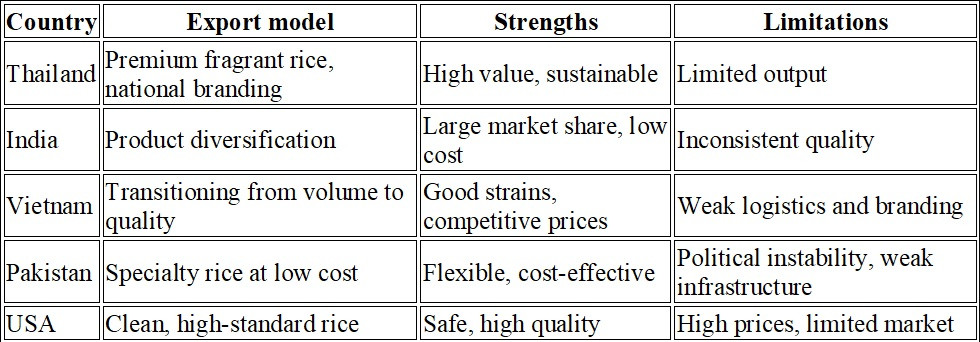Vietnam: Don’t restrict rice exports with outdated policies disguised as reform

A recent article published by VietNamNet, titled “Vietnam’s rice export policy at a crossroads,” provides a candid and commendable critique of the Ministry of Industry and Trade’s draft amendment to Decree 107 regarding rice exports. While institutional reform has been clearly emphasized in Politburo Resolutions 66 and 68 – strategic directions meant to unleash private sector potential – these intentions are now at risk of being distorted by overly administrative, backward-thinking regulations.
I appreciate the article’s analytical, objective tone that doesn’t shy away from firmness where needed. It highlighted a concerning clause in the draft requiring exporters to own warehouses capable of storing thousands of tons of rice – even without any secured contracts. This represents not only a step backward in economic governance but also contradicts the government’s stated commitment to regulatory reform.
Many small rice exporters, particularly in the Mekong Delta, have played critical roles in value chains by sourcing and processing specialty rice and partnering directly with farmers. When Decree 107 was first issued in 2018, these businesses seized new opportunities. In 2019 alone, the number of rice exporters increased by 1.4 times – a clear sign that controlled liberalization had worked.
Instead of building on this momentum with support and post-check mechanisms, the new draft imposes stricter preconditions that smaller firms can’t meet. These include burdensome requirements like owning physical warehouses, which not only place heavy financial pressure on businesses but also violate the constitutional right to freely conduct business.
Good policy should not be about filtering out players to favor those already advantaged. That path leads to “regulatory capture,” where interest groups shape laws to maintain their dominance. Reform that merely looks good on paper while erecting invisible barriers will ultimately erode investor confidence.
Governance today should be based on performance metrics – contracts fulfilled, taxes paid, traceability ensured – not rigid asset ownership. Capital is better invested in rice quality, seed improvement, or logistics than in mandatory fixed assets.
We can learn from countries like Thailand, India, and even the United States – where supervision exists but doesn’t exclude smaller exporters. These countries understand that diversity in business size adds agility and resilience to the export sector.

At its core, policy success hinges on mindset. Reform should not mean trading one ill-fitting “jacket” for another even tighter one. The government has long declared its shift “from control to service” and its role as a development enabler – now is the time to turn those declarations into action.
The draft amendment to Decree 107 should be reconsidered with an unbiased, on-the-ground perspective – especially from the small businesses facing climate risks, price volatility, and fierce competition daily. If we can’t yet guide them to the global stage, we must at least not force them to scale walls higher than their capabilities.
Regulations, if likened to roads, should be smooth, wide, and offer multiple lanes. We cannot speak of innovation, “dragon dreams,” or green exports if that road remains obstructed by artificial barriers. Now is the time not just to talk about “partnering with businesses,” but to act as true collaborators: solving problems together and advancing together.
Author: To Van Truong
For almost 30 years of expertise in the agri markets, UkrAgroConsult has accumulated an extensive database, which became the basis of the platform AgriSupp.
It is a multi-functional online platform with market intelligence for grains and oilseeds that enables to get access to daily operational information on the Black Sea & Danube markets, analytical reports, historical data.
You are welcome to get a 7-day free demo access!!!
Read also
Abbey Commodities – General Partner of BLACK SEA GRAIN.KYIV-2026
Black Sea & Danube Barley Market at a Turning Point: Demand Pressure and Regi...
US Supreme Court rules Trump’s emergency duties illegal
Mercosur: Protective measures for European agriculture
US makes concessions on pulses in new trade deal with India
Write to us
Our manager will contact you soon



